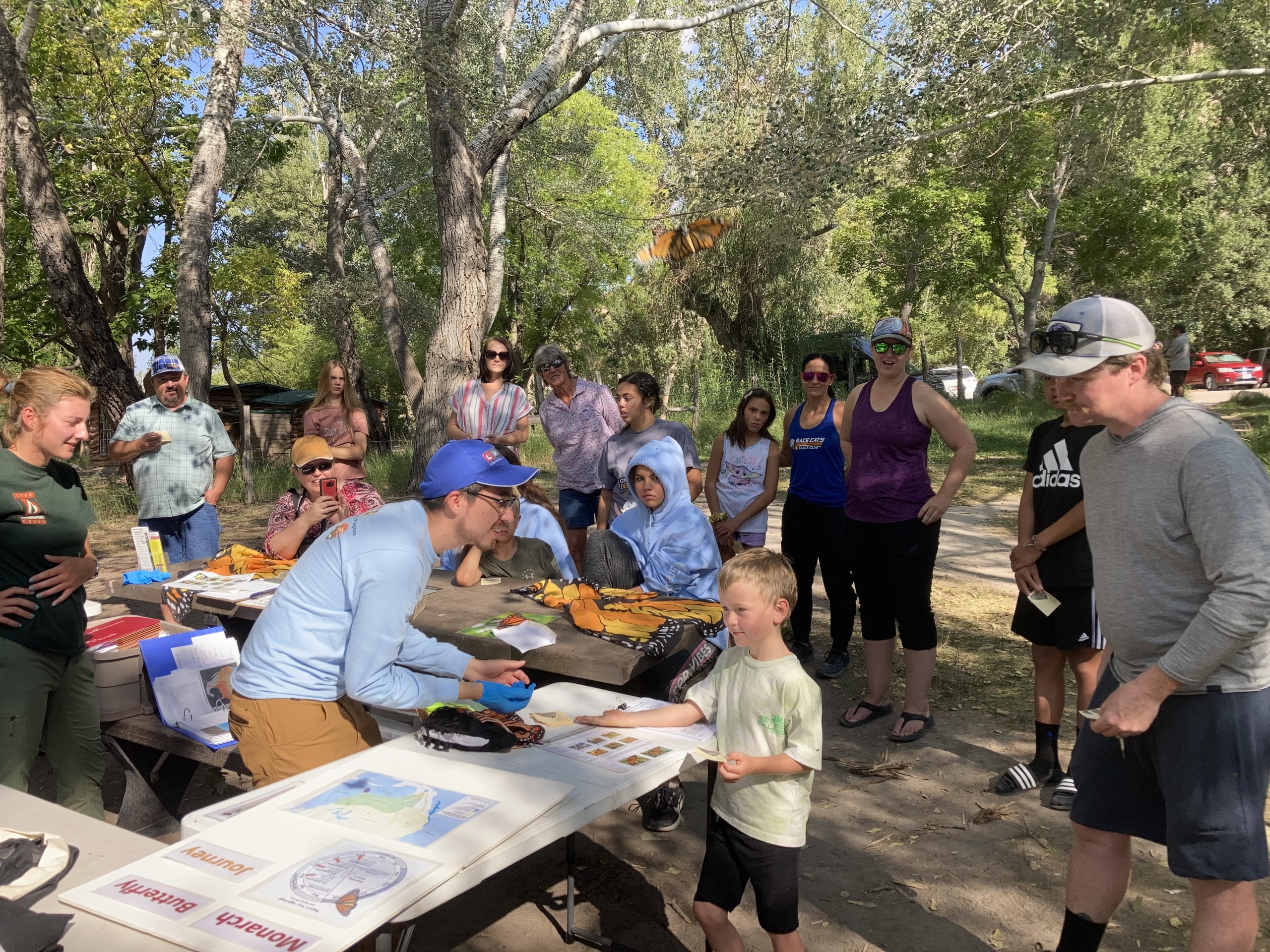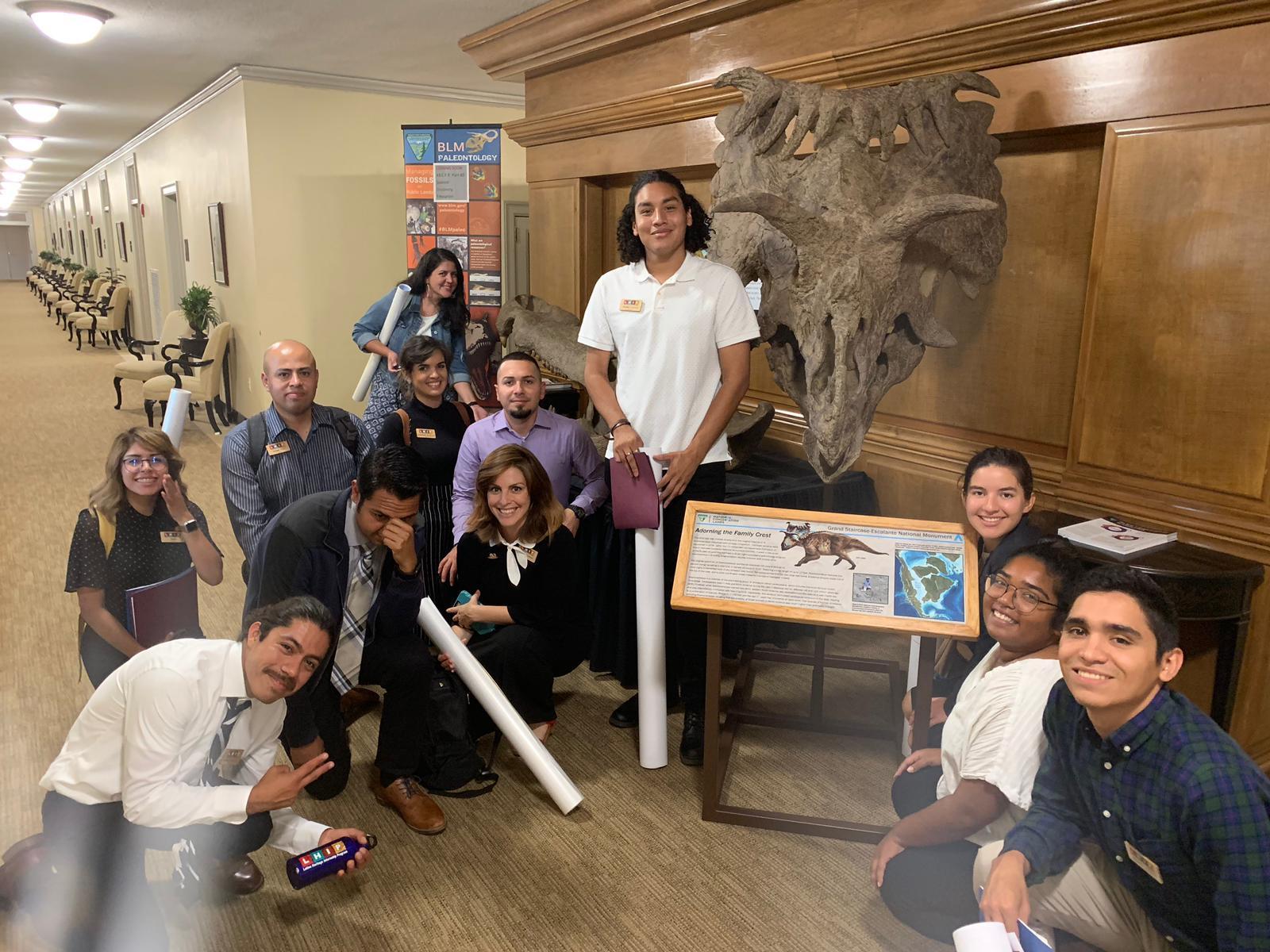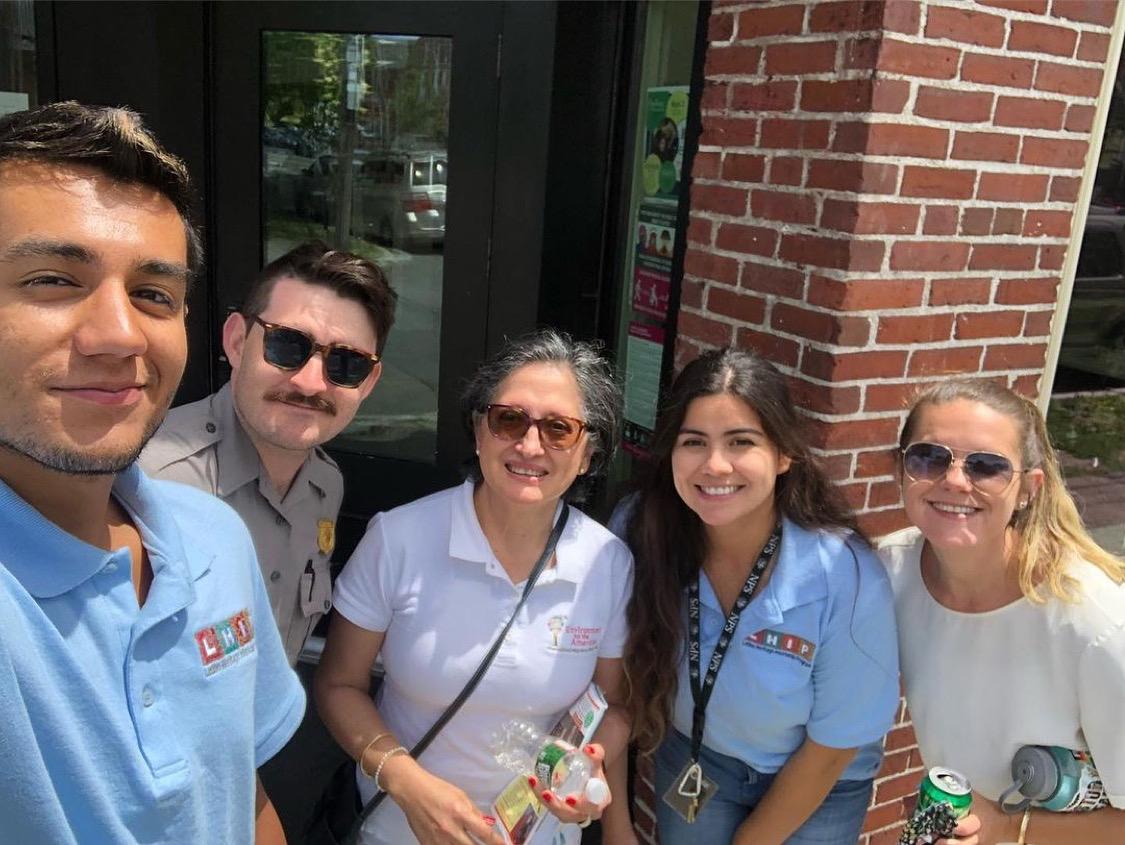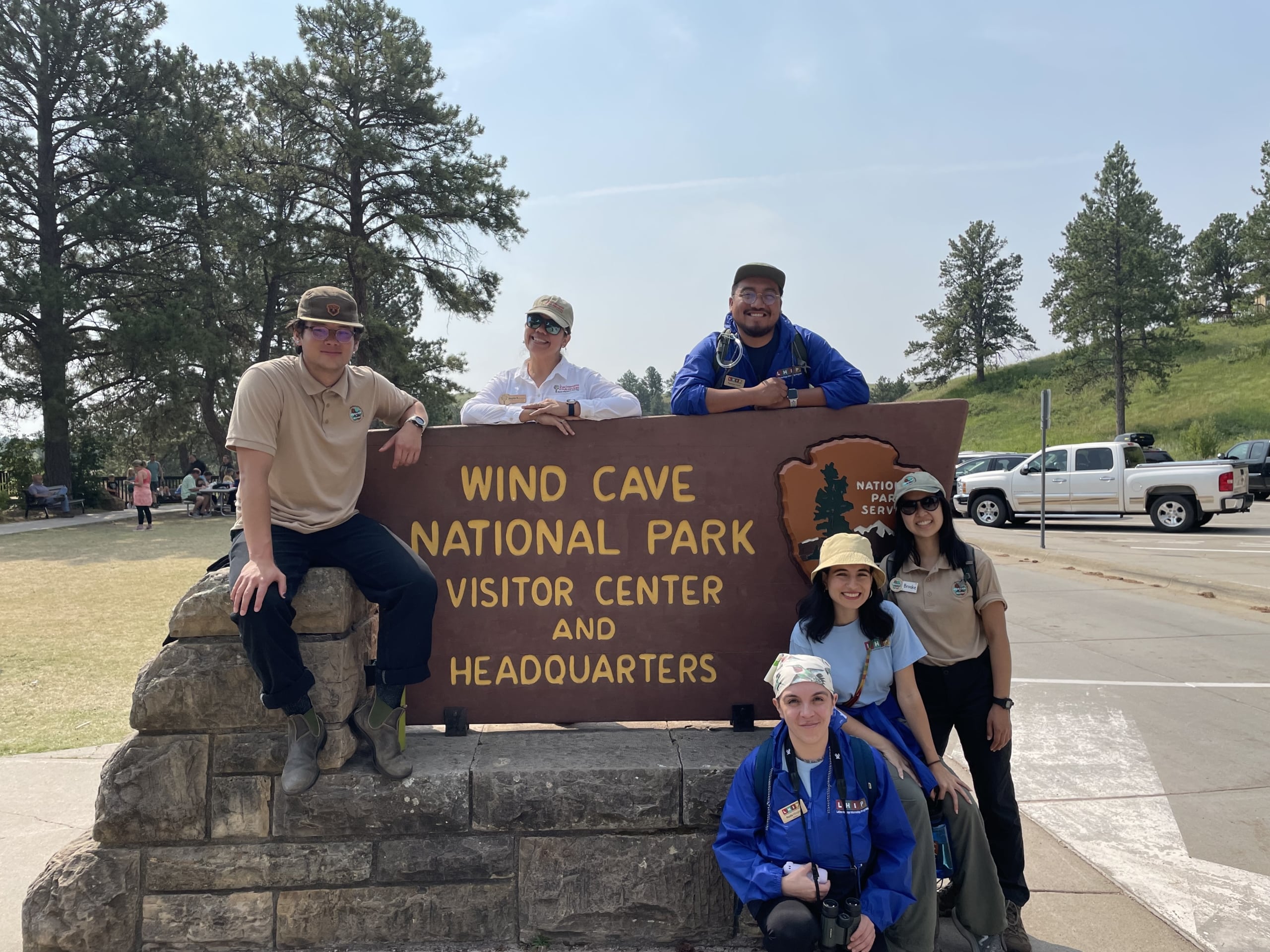
“The success of the program comes from the fact that many were not aware of the possibilities of working at the National Park Service. Once interns go through the internship and reach professional experience, they feel welcome. They feel they can apply to these positions. They do want to participate in stewardship,” says Dalia Dorta, Latino Programs Director.
In honor of Hispanic Heritage Month (September 15 – October 15), we are highlighting the Latino Heritage Internship Program (LHIP), created by the National Park Service (NPS) and administered in partnership with Environment for the Americas (EFTA).
LHIP provides young adults internship opportunities in diverse professional fields within the National Park Service. The program helps raise awareness about our national parks and historic sites and increases their accessibility to all communities.
Both undergraduate and graduate students are selected to work alongside NPS historians, interpreters, archaeologists, architects, researchers, biologists, communicators, and other professionals in various national parks, offices, and historical sites throughout the nation. Students have substantive assignments in their areas of study, work closely with NPS staff day-to-day, and receive additional mentoring and support through program partners.
How It Works
LHIP allows the NPS to invest in cost-efficient strategies that introduce students to career fields and help entry-level young professionals enter the workforce.
LHIP is offered at national parks across the United States and its territories. There are over 400 national parks; over 100 participate in the program. Individual parks develop requests and proposals that must meet requirements such as having a solid project, the ability to professionally grow an intern, and more. Many of the internships are concentrated in the West and Southwest.
LHIP recruits interns by directly working with over 100 Hispanic service institutions to reach young adults. Since 2015, LHIP has hired 268 interns that have served more than 100,000 hours in our national parks. The first official cohort was in 2016. Thirty of the interns that have completed this program have gone on to be hired by NPS in both seasonal and permanent positions.
LHIP applicants must be a US citizen, 18 – 30 years old or a veteran up to age 35, and have a Latino background. There can be over 300 applicants for LHIP each year, with slots for only up to 40 interns in each cohort.
“My parents are into the outdoors and conservation. I was taken to parks and recreation areas as a child and they are special places to make connection to nature. Protecting these places alongside family is a Latino trait,” says current LHIP intern Nicole Segnini.

Community Impact and Need
LHIP was created to fulfill a need for the Latino community’s involvement in preservation and in meaningful and relevant science-based internships.
“Pointing out the lack of Latinos in NPS, the data was very clear, we are the fastest growing population in the US and the growth is coming from young people. This wasn’t represented in the population at NPS,” explains Dorta. “We are 1/5 of the country’s population so we should be 1/5 of everything in the country, we have assets people don’t know of or appreciate because they are not aware of the potential. It’s up to us Latinos to bring this forward. We are capable, we are prepared, we are trained.”
LHIP opens up the possibilities for young Latinos to end up in careers at NPS, the Forest Service, Land Management, or other federal agencies.
“They don’t know or feel prepared for the uncertainty to leave home. Sometimes I even reach out to parents to help them understand the benefits and support their children will have. There are so many talented students ready to put in the effort, have grown with multiple languages and cultures, welcome education, and are capable of training to be compassionate with others,” said Dorta. “These assets should be grown and appreciated.”
As a paid internship, LHIP removes the barriers for those who cannot gain professional development for a summer without pay.
“It’s really nice to see a lot of us, Latinos and immigrants, doing conservation efforts. It also proves to the parks that they need more Latinos and that we do a good job. It is important to have us represented and a pipeline to have us work for NPS,” said Segnini, explaining the importance of LHIP and her role working in the NPS Communications office. “My favorite part has been elevating the work of Hispanic interns and coworkers and the incredible projects they have done. It’s like look at my people. As a Latina, I felt very proud, helping to amplify. If you see yourself represented, you become more interested.”

Internship Projects and Benefits
Two types of internships are offered; both are paid with a weekly stipend above minimum wage. Conservation fellows go through a 12-week program and earn a Public Lands Corps direct hire authority to work at NPS or other federal agencies within two years of graduation. The hiring authority allows them to have a better chance of getting hired by the federal government as they are not competing with the general public. In many instances they can be hired on the spot.
The second internship opportunity spans 11 weeks and is 440 hours of service. There is also an opportunity to earn a Public Lands hiring certificate by doing an additional 200 hours of work on public lands.
The interns are offered personal and professional support throughout the program and after they complete their service. There are weekly professional development webinars, discussing anything from developing their resume to how to manage microaggressions or harassment in the workplace. At the end of the internship there is a professional workshop which offers four days of intensive training, networking, and opportunities for interns to present their work.
Prior to the COVID-19 pandemic, this workshop was held at the Department of Interior in Washington, DC.
“It provides the interns with a good opportunity to learn and share their experiences, [and] encourages community building among young people that care about environment and supporting each other as professionals down the line,” says Dorta.
LHIP interns’ personal needs are also acknowledged on many fronts. They are invited to publish blogs on their experiences and there are anonymous way to send feedback. Interns can also seek emotional support from a specialist who consults with the program.
“It is important for their own health and growth to feel they are in a safe space. We need to know about their struggles to speak out and change things,” says Dorta.

Future of the program
Dorta hopes the LHIP model can expand to other communities of color and those who might not feel welcome creating an accessible space with the same passion and intentionality.
“When you have pride in your community you bring them with you,” said Dorta.
Segnini notes the importance of inclusion at the NPS.
“The main thing is the parks and public lands are ours too, we’re all supposed to protect and serve them for future generations, it’s where we live,” she said. “Conservation is rooted in our culture. Recycling, reusing, and more. We are already involved in it. If we don’t see ourselves represented, we don’t see our people in this field, maybe we feel it’s not for us. I want to be that person for other kids, to guide them to do this work, there’s space for you. I want to inspire other Latinas to do this. There is a space for everyone in conservation.”



































































